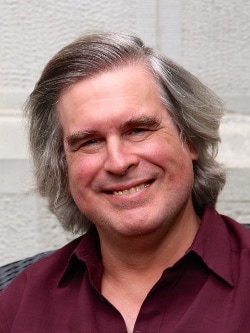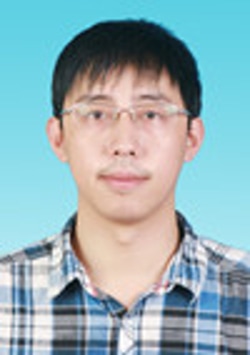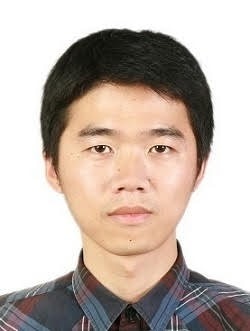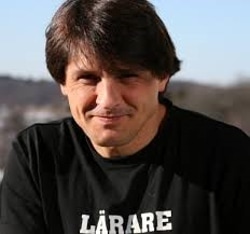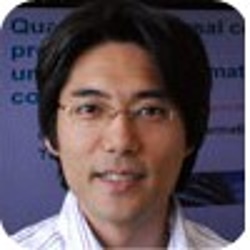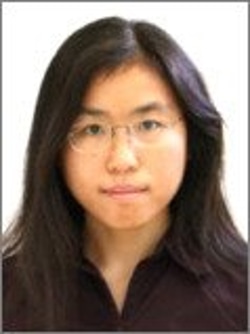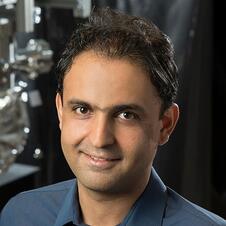
QICi Online Seminar: Local Symmetric Quantum Circuits: How, in the presence of symmetry, locality restricts realizable unitaries
Speaker: Iman Marvian, Duke University
Date and Time: Thursday December 16, 2021, 10 am Hong Kong .
Meeting link on ZOOM: hku.zoom.us/j/95330318848?pwd=QUJQRW1sVWZ3eXgxMzdBMXNkbHlJUT09
Meeting ID: 953 3031 8848
Password: 901708
Abstract: According to an elementary result in quantum computing, any unitary transformation on a composite system can be generated using 2-local unitaries. Does this universality remain valid in the presence of conservation laws and global symmetries? In particular, do k-local symmetric unitaries on a composite system generate all symmetric unitaries on the system? I show that the answer is negative in the case of continuous symmetries, such as U(1) and SU(2): generic symmetric unitaries cannot be implemented, even approximately, using local symmetric unitaries. In the context of quantum thermodynamics, this means that generic energy-conserving unitary transformations on a composite system cannot be implemented by applying local energy-conserving unitary transformations on the components. I also show how this no-go theorem can be circumvented via catalysis. In the second part of the talk, I will present some recent results on systems of qudits with SU(d) symmetry. These results reveal an important distinction between the case of d=2 and d>2.
Speaker: Iman Marvian, Duke University
Date and Time: Thursday December 16, 2021, 10 am Hong Kong .
Meeting link on ZOOM: hku.zoom.us/j/95330318848?pwd=QUJQRW1sVWZ3eXgxMzdBMXNkbHlJUT09
Meeting ID: 953 3031 8848
Password: 901708
Abstract: According to an elementary result in quantum computing, any unitary transformation on a composite system can be generated using 2-local unitaries. Does this universality remain valid in the presence of conservation laws and global symmetries? In particular, do k-local symmetric unitaries on a composite system generate all symmetric unitaries on the system? I show that the answer is negative in the case of continuous symmetries, such as U(1) and SU(2): generic symmetric unitaries cannot be implemented, even approximately, using local symmetric unitaries. In the context of quantum thermodynamics, this means that generic energy-conserving unitary transformations on a composite system cannot be implemented by applying local energy-conserving unitary transformations on the components. I also show how this no-go theorem can be circumvented via catalysis. In the second part of the talk, I will present some recent results on systems of qudits with SU(d) symmetry. These results reveal an important distinction between the case of d=2 and d>2.
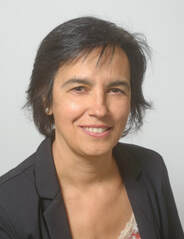
QICi Online Seminar: Efficient detection of quantum channel capacities
Speaker: Chiara Macchiavello, University of Pavia
Date and Time: Friday January 29, 2021, 4.30 pm Hong Kong .
Meeting link on ZOOM: https://hku.zoom.us/j/95245158307pwd=VmVseVlROUh4dlg4SHVMZFo3L0JwZz09
Meeting ID: 952 4515 8307
Password: 466560
Abstract: Quantum capacities represent a central quantitative notion to evaluate the efficiency of a communication channel to convey quantum information. We propose a method to detect lower bounds to quantum capacities of a noisy communication channel by means of few measurements and by avoiding full process tomography. We show how the procedure can be easily applied to any finite-dimensional system and unknown noisy channels. We test its efficiency by studying explicitly its performance for most well-known single qubit noisy channels, for the generalised Pauli channel in arbitrary finite dimension, and for correlated Pauli and amplitude damping channels acting on two qubits.
Speaker: Chiara Macchiavello, University of Pavia
Date and Time: Friday January 29, 2021, 4.30 pm Hong Kong .
Meeting link on ZOOM: https://hku.zoom.us/j/95245158307pwd=VmVseVlROUh4dlg4SHVMZFo3L0JwZz09
Meeting ID: 952 4515 8307
Password: 466560
Abstract: Quantum capacities represent a central quantitative notion to evaluate the efficiency of a communication channel to convey quantum information. We propose a method to detect lower bounds to quantum capacities of a noisy communication channel by means of few measurements and by avoiding full process tomography. We show how the procedure can be easily applied to any finite-dimensional system and unknown noisy channels. We test its efficiency by studying explicitly its performance for most well-known single qubit noisy channels, for the generalised Pauli channel in arbitrary finite dimension, and for correlated Pauli and amplitude damping channels acting on two qubits.
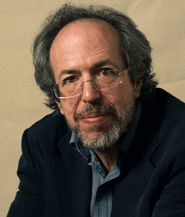
QICi Online Seminar: The quantum universe as a collection of partial views of itself
Speaker: Lee Smolin
Date and Time: Thursday January 28, 2021, 3 pm GMT/ 3 pm London / 11 pm Hong Kong / 10 am New York .
Meeting link on ZOOM: https://hku.zoom.us/j/728065144 or Join with Meeting ID 728 065 144, Password- QISS
Abstract: I describe a recent proposal for a simultaneous completion of quantum mechanics and general relativity, called the causal theory of views (CTV).
Among its postulates are that time, in the sense of causal relations amongst events, is fundamental, and that space is emergent-along with everything that depends on space, such as distances, derivatives, fields, locality, non-locality etc.
Also assumed real and fundamental are energy and momentum. Each event than has a view of the rest of the universe, which is made by the energy and momentum transferred to it by its causal precedents.
To define dynamics we must introduce a measure of distance on the space of views. The idea is that differences of views substitutes for spacial distances and derivatives. The potential energy is then postulated to be a measure of the total diversity of views in the universe, called the variety. The kinetic energy is then related to the variety’s rate of change under causal evolution.
The dynamics is defined by a sum over causal histories, from which space and spacetime emerge at the semiclassical approximation. N body nonrelativistic quantum mechanics is also derived, due to the variety reducing to Bohm’s quantum potential.
Further steps are sketched.
Based on papers: arXiv:1712.04799. with Marina Cortes: arXiv:1307.6167, arXiv:1407.0032, arXiv:1703.09696 , arXiv:1902.05082,
arXiv:1104.2822, arXiv:1506.02938, arXiv:1205.3707
Speaker: Lee Smolin
Date and Time: Thursday January 28, 2021, 3 pm GMT/ 3 pm London / 11 pm Hong Kong / 10 am New York .
Meeting link on ZOOM: https://hku.zoom.us/j/728065144 or Join with Meeting ID 728 065 144, Password- QISS
Abstract: I describe a recent proposal for a simultaneous completion of quantum mechanics and general relativity, called the causal theory of views (CTV).
Among its postulates are that time, in the sense of causal relations amongst events, is fundamental, and that space is emergent-along with everything that depends on space, such as distances, derivatives, fields, locality, non-locality etc.
Also assumed real and fundamental are energy and momentum. Each event than has a view of the rest of the universe, which is made by the energy and momentum transferred to it by its causal precedents.
To define dynamics we must introduce a measure of distance on the space of views. The idea is that differences of views substitutes for spacial distances and derivatives. The potential energy is then postulated to be a measure of the total diversity of views in the universe, called the variety. The kinetic energy is then related to the variety’s rate of change under causal evolution.
The dynamics is defined by a sum over causal histories, from which space and spacetime emerge at the semiclassical approximation. N body nonrelativistic quantum mechanics is also derived, due to the variety reducing to Bohm’s quantum potential.
Further steps are sketched.
Based on papers: arXiv:1712.04799. with Marina Cortes: arXiv:1307.6167, arXiv:1407.0032, arXiv:1703.09696 , arXiv:1902.05082,
arXiv:1104.2822, arXiv:1506.02938, arXiv:1205.3707
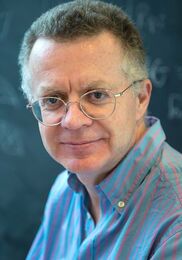
QICi Online Seminar: Time Symmetry in Operational Theories
Speaker: Lucien Hardy, Perimeter Institute
Date and Time: Thursday November 19, 2020, 3 pm GMT/ 3 pm London / 11 pm Hong Kong / 10 am New York .
Meeting link on ZOOM: https://hku.zoom.us/j/728065144 or Join with Meeting ID 728 065 144, Password- QISS.
Abstract: The standard framework for probabilistic operational theories is time asymmetric. The fact that future choices cannot affect the probability of earlier outcomes is mathematised by the statement that the deterministic effect is unique. However, deterministic preparations are not unique and, correspondingly, earlier choices can influence later probabilities of outcomes. This time asymmetry is rather strange because abstract probability theory knows nothing of time. Furthermore, the Schoedinger equation is time symmetric and, additionally, measurement situations can be treated by very simple models (without invoking the Second Law at all). In this talk I will outline how it is possible to give a time symmetric treatment of operational probabilistic theories with particular application to Quantum Theory. In so doing, we will see that the usual formulation of operational quantum theory is, in some sense, missing half of the picture.
Speaker: Lucien Hardy, Perimeter Institute
Date and Time: Thursday November 19, 2020, 3 pm GMT/ 3 pm London / 11 pm Hong Kong / 10 am New York .
Meeting link on ZOOM: https://hku.zoom.us/j/728065144 or Join with Meeting ID 728 065 144, Password- QISS.
Abstract: The standard framework for probabilistic operational theories is time asymmetric. The fact that future choices cannot affect the probability of earlier outcomes is mathematised by the statement that the deterministic effect is unique. However, deterministic preparations are not unique and, correspondingly, earlier choices can influence later probabilities of outcomes. This time asymmetry is rather strange because abstract probability theory knows nothing of time. Furthermore, the Schoedinger equation is time symmetric and, additionally, measurement situations can be treated by very simple models (without invoking the Second Law at all). In this talk I will outline how it is possible to give a time symmetric treatment of operational probabilistic theories with particular application to Quantum Theory. In so doing, we will see that the usual formulation of operational quantum theory is, in some sense, missing half of the picture.
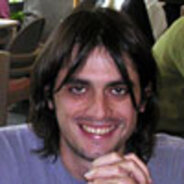
QICi Online Seminar: Two birds with one stone: discreteness, the cosmological constant problem, and the Hawking information puzzle
Speaker: Alejandro Perez, University of Aix-Marseille
Date and Time: Thursday October 01, 2020, 2.30 pm GMT/ 3.30 pm London / 10.30 pm Hong Kong / 10.30 am New York .
Meeting link on ZOOM: https://hku.zoom.us/j/728065144 or Join with Meeting ID 728 065 144, Password- QISS.
Speaker: Alejandro Perez, University of Aix-Marseille
Date and Time: Thursday October 01, 2020, 2.30 pm GMT/ 3.30 pm London / 10.30 pm Hong Kong / 10.30 am New York .
Meeting link on ZOOM: https://hku.zoom.us/j/728065144 or Join with Meeting ID 728 065 144, Password- QISS.
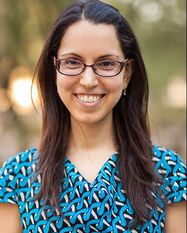
QICi Online Seminar: `Noncommuting conserved quantities in quantum many-body thermalization'
Speaker: Nicole Yunger Halpern, Harvard University
Date and Time: Friday September 11, 2020, 2 pm GMT/ 3 pm London / 10 pm Hong Kong / 10 am New York .
Meeting link on ZOOM: https://hku.zoom.us/j/95512510759 pwd=cUZ1Z3BjY0ZBV0lDYzdoaGpHVlpkQT09 or Join with Meeting ID 955 1251 0759, Password- 373431.
Abstract: In statistical mechanics, a small system exchanges conserved quantities— heat, particles, electric charge, etc.—with a bath. The small system may thermalize to the canonical ensemble, the grand canonical ensemble, etc. The conserved quantities are represented by operators usually assumed to commute with each other. But noncommutation distinguishes quantum physics from classical. What if the operators fail to commute? I will argue, using quantum-information-theoretic thermodynamics, that the small system thermalizes to near a “non-Abelian thermal state.” I will present a protocol for realizing this state experimentally, supported with numerical simulations of a spin chain. The protocol is suited to ultracold atoms, trapped ions, quantum dots, and more. This work introduces a nonclassical phenomenon—noncommutation of conserved quantities—into a decades-old thermodynamics problem.
References 1) NYH, Beverland, and Kalev, Phys. Rev. E 101, 042117 (2020) https://dx.doi.org/10.1103/PhysRevE.101.042117.
2) NYH, Faist, Oppenheim, and Winter, Nat. Comms. 7, 12051 (2016) https://www.nature.com/articles/ncomms12051.
3) NYH, J. Phys. A 51, 094001 (2018)
https://iopscience.iop.org/article/ 10.1088/1751-8121/aaa62f/meta.
Speaker: Nicole Yunger Halpern, Harvard University
Date and Time: Friday September 11, 2020, 2 pm GMT/ 3 pm London / 10 pm Hong Kong / 10 am New York .
Meeting link on ZOOM: https://hku.zoom.us/j/95512510759 pwd=cUZ1Z3BjY0ZBV0lDYzdoaGpHVlpkQT09 or Join with Meeting ID 955 1251 0759, Password- 373431.
Abstract: In statistical mechanics, a small system exchanges conserved quantities— heat, particles, electric charge, etc.—with a bath. The small system may thermalize to the canonical ensemble, the grand canonical ensemble, etc. The conserved quantities are represented by operators usually assumed to commute with each other. But noncommutation distinguishes quantum physics from classical. What if the operators fail to commute? I will argue, using quantum-information-theoretic thermodynamics, that the small system thermalizes to near a “non-Abelian thermal state.” I will present a protocol for realizing this state experimentally, supported with numerical simulations of a spin chain. The protocol is suited to ultracold atoms, trapped ions, quantum dots, and more. This work introduces a nonclassical phenomenon—noncommutation of conserved quantities—into a decades-old thermodynamics problem.
References 1) NYH, Beverland, and Kalev, Phys. Rev. E 101, 042117 (2020) https://dx.doi.org/10.1103/PhysRevE.101.042117.
2) NYH, Faist, Oppenheim, and Winter, Nat. Comms. 7, 12051 (2016) https://www.nature.com/articles/ncomms12051.
3) NYH, J. Phys. A 51, 094001 (2018)
https://iopscience.iop.org/article/ 10.1088/1751-8121/aaa62f/meta.
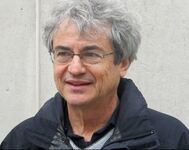
QICi Online Seminar: `Why can we influence the future?'
Speaker: Carlo Rovelli, University of Aix-Marseille
Date and Time: Thursday September 03, 2020, 3 pm GMT/ 4 pm London / 11 pm Hong Kong / 11 am New York .
Meeting link on ZOOM: https://hku.zoom.us/j/728065144 or Join with Meeting ID 728 065 144, Password- QISS.
Abstract: The two main components of the QISS community --quantum information and quantum gravity-- have opposite views on the arrow of time. This is generally taken as foundational in the dominant instrumentalist approach of the fist; while is often considered to be only a contingent aspect of the macroworld in the second. I show how to reconcile the two perspectives. This requires two steps: a careful analysis of the arrow of implication; and an understanding of the physical source of the time orientation of the agent. A number of papers have recently addressed these issues offering a compelling solution to the apparent disagreement.
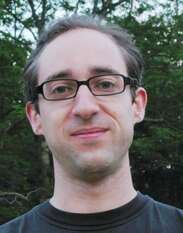
QICi Online Seminar: What is quantum theory?
Speaker: Robert Oeckl, UNAM, Morelia
Date and Time: Thursday July 16, 2020, 2 pm GMT/ 3 pm London / 10 pm Hong Kong / 10 am New York .
Meeting link on ZOOM: https://hku.zoom.us/j/728065144 or Join with Meeting ID 728 065 144, Password- QISS.
Speaker: Robert Oeckl, UNAM, Morelia
Date and Time: Thursday July 16, 2020, 2 pm GMT/ 3 pm London / 10 pm Hong Kong / 10 am New York .
Meeting link on ZOOM: https://hku.zoom.us/j/728065144 or Join with Meeting ID 728 065 144, Password- QISS.
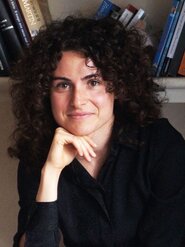
QICi Online Seminar: Witnessing non-classicality beyond quantum theory
Speaker: Chiara Marletto, University of Oxford
Date and Time: Thursday July 02, 2020, 2 pm GMT/ 3 pm London / 10 pm Hong Kong / 10 am New York .
Meeting link on ZOOM: https://hku.zoom.us/j/728065144 or Join with Meeting ID 728 065 144, Password- QISS.
Abstract: After briefly discussing constructor theory (a recently proposed generalisation of the quantum theory of computation), I will present the general argument that provides a robust theoretical underpinning for the recently proposed experiments to witness quantum effects in gravity.
Speaker: Chiara Marletto, University of Oxford
Date and Time: Thursday July 02, 2020, 2 pm GMT/ 3 pm London / 10 pm Hong Kong / 10 am New York .
Meeting link on ZOOM: https://hku.zoom.us/j/728065144 or Join with Meeting ID 728 065 144, Password- QISS.
Abstract: After briefly discussing constructor theory (a recently proposed generalisation of the quantum theory of computation), I will present the general argument that provides a robust theoretical underpinning for the recently proposed experiments to witness quantum effects in gravity.
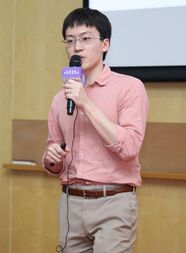
QICi Online Seminar: Ultimate limit on Time Signal Generation.
Speaker: Yuxiang Yang , ETH Zürich.
Date and Time: Friday, May 15th, 2020, 4:00PM-5:00PM HK Time (GMT+8) .
Meeting link on ZOOM: https://hku.zoom.us/j/98907385374 or Join with Meeting ID 989 0738 5374.
Abstract: The generation of time signals is a fundamental task in science. Here I will talk about the relation between the quality of a time signal and the physics of the system that generates it. According to quantum theory, any time signal can be decomposed into individual quanta that lead to single detection events. Our main result is a bound on how sharply peaked in time these events can be, which depends on the dimension of the signal generator. I will also discuss how the result may lead to a more accurate clock in the future. The talk will be based on https://arxiv.org/abs/2004.07857.
BIO: Yuxiang Yang is a postdoctoral fellow at the Institute for Theoretical Physics, ETH Zurich. He holds a PhD in Computer Science from The University of Hong Kong and a BS in Physics from Tsinghua University. In 2017 he was awarded a Microsoft Research Asia Fellowship for his work in quantum information theory. His research aims to identify quantum advantages in communication and computation, and to design optimal protocols for the next generation of quantum computing devices.
Speaker: Yuxiang Yang , ETH Zürich.
Date and Time: Friday, May 15th, 2020, 4:00PM-5:00PM HK Time (GMT+8) .
Meeting link on ZOOM: https://hku.zoom.us/j/98907385374 or Join with Meeting ID 989 0738 5374.
Abstract: The generation of time signals is a fundamental task in science. Here I will talk about the relation between the quality of a time signal and the physics of the system that generates it. According to quantum theory, any time signal can be decomposed into individual quanta that lead to single detection events. Our main result is a bound on how sharply peaked in time these events can be, which depends on the dimension of the signal generator. I will also discuss how the result may lead to a more accurate clock in the future. The talk will be based on https://arxiv.org/abs/2004.07857.
BIO: Yuxiang Yang is a postdoctoral fellow at the Institute for Theoretical Physics, ETH Zurich. He holds a PhD in Computer Science from The University of Hong Kong and a BS in Physics from Tsinghua University. In 2017 he was awarded a Microsoft Research Asia Fellowship for his work in quantum information theory. His research aims to identify quantum advantages in communication and computation, and to design optimal protocols for the next generation of quantum computing devices.
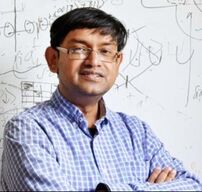
QICi Online Seminar: Table-top Testing of the Quantum Nature of Gravity: Assumptions, Implications and Practicalities of a Proposal
Speaker: Sougato Bose, University College London
Date and Time: Thursday May 14, 2020, 3 pm GMT / 11 pm HK Time .
Meeting link on ZOOM: https://hku.zoom.us/j/728065144 or Join with Meeting ID 728 065 144.
Abstract: A lack of empirical evidence has lead to a debate on whether gravity is a quantum entity. Motivated by this, I will present a feasible idea for such a test based on the principle that two objects cannot be entangled without a quantum mediator. I will show that despite the weakness of gravity, the phase evolution induced by the gravitational interaction of two micron size test masses in adjacent matter-wave interferometers can detectably entangle them even when they are placed far apart enough to keep Casimir-Polder forces at bay. A prescription for witnessing this entanglement, which certifies gravity as a quantum coherent mediator, is also provided and can be measured through simple spin correlations. Further, I clarify the assumptions underpinning the above proposal such as our reasonable definition of "classicality", as well as the crucial aspect of the locality of physical interactions. The role of off-shell processes is also highlighted to clarify what the mediators actually are according to the standard theory of quantum gravity. How the experiment sits within relativistic quantum field theory is clarified. Lastly, a list of practical challenges are noted.
Speaker: Sougato Bose, University College London
Date and Time: Thursday May 14, 2020, 3 pm GMT / 11 pm HK Time .
Meeting link on ZOOM: https://hku.zoom.us/j/728065144 or Join with Meeting ID 728 065 144.
Abstract: A lack of empirical evidence has lead to a debate on whether gravity is a quantum entity. Motivated by this, I will present a feasible idea for such a test based on the principle that two objects cannot be entangled without a quantum mediator. I will show that despite the weakness of gravity, the phase evolution induced by the gravitational interaction of two micron size test masses in adjacent matter-wave interferometers can detectably entangle them even when they are placed far apart enough to keep Casimir-Polder forces at bay. A prescription for witnessing this entanglement, which certifies gravity as a quantum coherent mediator, is also provided and can be measured through simple spin correlations. Further, I clarify the assumptions underpinning the above proposal such as our reasonable definition of "classicality", as well as the crucial aspect of the locality of physical interactions. The role of off-shell processes is also highlighted to clarify what the mediators actually are according to the standard theory of quantum gravity. How the experiment sits within relativistic quantum field theory is clarified. Lastly, a list of practical challenges are noted.
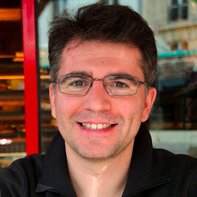
QICi Online Seminar: 'Entanglement and the Architecture of Spacetime.'
Speaker: Eugenio Bianchi, Penn State University.
Date and Time: Thursday April 23, 2020, 3 pm GMT / 11 pm HK Time .
Meeting link on ZOOM: https://hku.zoom.us/j/728065144 or Join with Meeting ID 728 065 144.
Abstract: The quantum field vacuum is highly entangled, even in causally disconnected regions. In contrast, the state of a quantum geometry of space can be unentangled, resulting in an uncorrelated network of elementary quanta of space. In this talk I discuss how the architecture of spacetime emerges from entanglement between these elementary quanta. I will focus on loop quantum gravity, causal structures and the primordial universe.
Speaker: Eugenio Bianchi, Penn State University.
Date and Time: Thursday April 23, 2020, 3 pm GMT / 11 pm HK Time .
Meeting link on ZOOM: https://hku.zoom.us/j/728065144 or Join with Meeting ID 728 065 144.
Abstract: The quantum field vacuum is highly entangled, even in causally disconnected regions. In contrast, the state of a quantum geometry of space can be unentangled, resulting in an uncorrelated network of elementary quanta of space. In this talk I discuss how the architecture of spacetime emerges from entanglement between these elementary quanta. I will focus on loop quantum gravity, causal structures and the primordial universe.
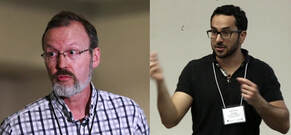
QICi Online Seminar: 'On Reduction and Functionalism of Space and Time.'
Speaker: Jeremy Butterfield and Henrique Gomes, University of Cambridge.
Date and Time: Thursday April 2, 2020, 3 pm GMT.
Meeting link on ZOOM: https://hku.zoom.us/j/728065144 or Join with Meeting ID 728 065 144.
Abstract: Various programmes and results in the philosophy/foundations of spacetime theories illustrate points about reduction and functionalism in general philosophy of science. I will focus on some programmes and results about how the physics of matter contributes to determining, or even determines, or even explains, chrono-geometry. I will say something about most of the following examples: the Helmholtz-Lie theorem on free mobility implying constant curvature; and in the philosophical literature, Robb (1914), and Mundy (1983). I also hope to mention from the physics literature: Barbour and Bertotti (1982), Hojman, Kuchar and Teitelboim (1976); Dull, Schuller et al. (2012, 2018); and Gomes & Shyam (2016: arXiv:1608.08236 , J. Math. Phys. 57, 112503).
Speaker: Jeremy Butterfield and Henrique Gomes, University of Cambridge.
Date and Time: Thursday April 2, 2020, 3 pm GMT.
Meeting link on ZOOM: https://hku.zoom.us/j/728065144 or Join with Meeting ID 728 065 144.
Abstract: Various programmes and results in the philosophy/foundations of spacetime theories illustrate points about reduction and functionalism in general philosophy of science. I will focus on some programmes and results about how the physics of matter contributes to determining, or even determines, or even explains, chrono-geometry. I will say something about most of the following examples: the Helmholtz-Lie theorem on free mobility implying constant curvature; and in the philosophical literature, Robb (1914), and Mundy (1983). I also hope to mention from the physics literature: Barbour and Bertotti (1982), Hojman, Kuchar and Teitelboim (1976); Dull, Schuller et al. (2012, 2018); and Gomes & Shyam (2016: arXiv:1608.08236 , J. Math. Phys. 57, 112503).
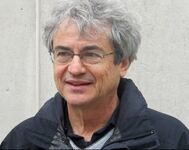
QICi Distinguished Lecture: 'What is time?'
Speaker: Carlo Rovelli, University of Aix-Marseille and Quantum Gravity Laboratory, CNRS Center of Theoretical Physics, Marseille, France .
Time and location: Tuesday January 14, 2020, 4.45-5.45 pm,
Reception begins at 4 pm, talk followed by book signing session,
Lecture Theater A, Ground Floor, Chow Yei Ching Building
Abstract: 'Time' is something very familiar to all of us. But the physics of XX century brought the discovery that time works quite differently from what we usually think. In this talk, i will review what we have learned about the nature of time, but also the open mysteries surrounding the notion. These mysteries are connected with many open questions about the universe, like the fate of black holes, the nature of heat, the reason past is different from future, and the nature of our consciousness.
Bio: Carlo Rovelli is a prominent theoretical physicist and writer. He is a founder of the theory of Loop Quantum Gravity, one of the leading proposals for the quantization of spacetime. His research is regularly featured in international outlets such as the New York Times and the Financial Times. He is also known for his passion for sharing science with the general public, and for his contributions to the history and philosophy of science. He writes guest columns on several newspapers, including leading Italian outlets such as Corriere della Sera, Il Sole 24 Ore and La Repubblica. He is also author of several successful popular science books. His Seven brief Lessons on Physics has been translated into 41 languages and has sold over a million copies worldwide. In 2019 he was included by Foreign Policy magazine in a list of the 100 most influential global thinkers. The central theme of his research is the meaning of time, whether it exists objectively or whether it is an illusory, perspectival aspect of the universe.
Speaker: Carlo Rovelli, University of Aix-Marseille and Quantum Gravity Laboratory, CNRS Center of Theoretical Physics, Marseille, France .
Time and location: Tuesday January 14, 2020, 4.45-5.45 pm,
Reception begins at 4 pm, talk followed by book signing session,
Lecture Theater A, Ground Floor, Chow Yei Ching Building
Abstract: 'Time' is something very familiar to all of us. But the physics of XX century brought the discovery that time works quite differently from what we usually think. In this talk, i will review what we have learned about the nature of time, but also the open mysteries surrounding the notion. These mysteries are connected with many open questions about the universe, like the fate of black holes, the nature of heat, the reason past is different from future, and the nature of our consciousness.
Bio: Carlo Rovelli is a prominent theoretical physicist and writer. He is a founder of the theory of Loop Quantum Gravity, one of the leading proposals for the quantization of spacetime. His research is regularly featured in international outlets such as the New York Times and the Financial Times. He is also known for his passion for sharing science with the general public, and for his contributions to the history and philosophy of science. He writes guest columns on several newspapers, including leading Italian outlets such as Corriere della Sera, Il Sole 24 Ore and La Repubblica. He is also author of several successful popular science books. His Seven brief Lessons on Physics has been translated into 41 languages and has sold over a million copies worldwide. In 2019 he was included by Foreign Policy magazine in a list of the 100 most influential global thinkers. The central theme of his research is the meaning of time, whether it exists objectively or whether it is an illusory, perspectival aspect of the universe.
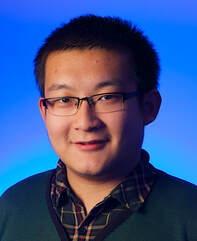
QICi Seminar: Quantum Algorithms for Machine Learning and Optimization.
Speaker: Tongyang Li, University of Maryland.
Time and location: Thursday December 19, 2019, 2-3 pm
Room 308, Chow Yei Ching Building
Abstract: The theories of machine learning and optimization answer foundational questions in computer science and lead to new algorithms for practical applications. While these topics have been extensively studied in the context of classical computing, their quantum counterparts are far from well-understood. In this talk, I will introduce my research that bridgesthe gap between the fields of quantum computing and theoretical machine learning. To be more specific, I will briefly introduce some of my recent developments on quantum advantages for machine learning and optimization, including classification (ICML 2019), convex optimization (QIP 2019), generative adversarial networks (NeurIPS 2019), semidefinite programming (QIP 2019), etc. I will also introduce limitations of quantum computers by giving quantum inspired classical machine learning algorithms.
Bio: Tongyang Li is a Ph.D. candidate at the Department of Computer Science, University of Maryland. He received B.E. from Institute for Interdisciplinary Information Sciences, Tsinghua University and B.S. from Department of Mathematical Sciences, Tsinghua University, both in 2015; he also received a Master degree from Department of Computer Science, University of Maryland in 2018. He is a recipient of the IBM Ph.D. Fellowship, the NSF QISE-NET Triplet Award, and the Lanczos Fellowship. His research focuses on designing quantum algorithms for machine learning and optimization.
Speaker: Tongyang Li, University of Maryland.
Time and location: Thursday December 19, 2019, 2-3 pm
Room 308, Chow Yei Ching Building
Abstract: The theories of machine learning and optimization answer foundational questions in computer science and lead to new algorithms for practical applications. While these topics have been extensively studied in the context of classical computing, their quantum counterparts are far from well-understood. In this talk, I will introduce my research that bridgesthe gap between the fields of quantum computing and theoretical machine learning. To be more specific, I will briefly introduce some of my recent developments on quantum advantages for machine learning and optimization, including classification (ICML 2019), convex optimization (QIP 2019), generative adversarial networks (NeurIPS 2019), semidefinite programming (QIP 2019), etc. I will also introduce limitations of quantum computers by giving quantum inspired classical machine learning algorithms.
Bio: Tongyang Li is a Ph.D. candidate at the Department of Computer Science, University of Maryland. He received B.E. from Institute for Interdisciplinary Information Sciences, Tsinghua University and B.S. from Department of Mathematical Sciences, Tsinghua University, both in 2015; he also received a Master degree from Department of Computer Science, University of Maryland in 2018. He is a recipient of the IBM Ph.D. Fellowship, the NSF QISE-NET Triplet Award, and the Lanczos Fellowship. His research focuses on designing quantum algorithms for machine learning and optimization.
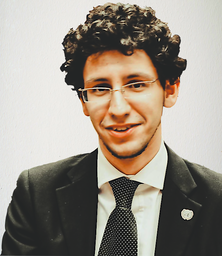
QICi Seminar: Using and reusing coherence to realize quantum processes.
Speaker: Matteo Rosati, Universitat Autonoma de Barcelona.
Time and location: Friday September 27, 2019, 2-3 pm
Room 308, Chow Yei Ching Building
Abstract: Coherent superposition is a key feature of quantum mechanics that underlies
the advantage of quantum technologies over their classical counterparts. Recently, coherence has been recast as a resource theory in an attempt to identify and quantify it in an operationally well-defined manner. Here we study how the coherence present in a state can be used to implement a quantum channel via incoherent operations and, in turn, to assess its
degree of coherence. We introduce the robustness of coherence of a quantum channel-which reduces to the homonymous measure for states when computed on constant-output channels-and prove that: i) it quantifies the minimal rank of a maximally coherent state required to implement the channel; ii) its logarithm quantifies the amortized cost of implementing the channel provided some coherence is recovered at the output; iii) its logarithm also quantifies the zero-error asymptotic cost of implementation of many independent copies of a channel. We also consider the generalized problem of imperfect implementation with arbitrary resource states. Using the robustness of coherence, we find that in general a quantum channel can be implemented without employing a maximally coherent resource state. In fact, we prove that every pure coherent state in dimension larger than 2, however weakly so, turns out to be a valuable resource to implement some coherent unitary channel. We illustrate our findings for the case of single-qubit unitary channels.
Bio: Matteo Rosati did his BSc and MSc studies in Physics (2009-2014) at Università La Sapienza, Rome, studying the modelling of disordered and complex systems under the supervision of Prof. Giorgio Parisi. He obtained his PhD in Theoretical Physics (2017) at Scuola Normale Superiore, Pisa with Prof. Vittorio Giovannetti, with a thesis aimed at devising efficient and implementable decoders for classical communication on quantum guassian channels. Since then, he has been a postdoctoral fellow at the Universitat Autonoma de Barcelona, working with Prof. Andreas Winter and John Calsamiglia on resource theories and quantum learning. In 2019 he has been awarded a Marie Skłodowska-Curie Fellowship from the EU, starting in January 2020.
Speaker: Matteo Rosati, Universitat Autonoma de Barcelona.
Time and location: Friday September 27, 2019, 2-3 pm
Room 308, Chow Yei Ching Building
Abstract: Coherent superposition is a key feature of quantum mechanics that underlies
the advantage of quantum technologies over their classical counterparts. Recently, coherence has been recast as a resource theory in an attempt to identify and quantify it in an operationally well-defined manner. Here we study how the coherence present in a state can be used to implement a quantum channel via incoherent operations and, in turn, to assess its
degree of coherence. We introduce the robustness of coherence of a quantum channel-which reduces to the homonymous measure for states when computed on constant-output channels-and prove that: i) it quantifies the minimal rank of a maximally coherent state required to implement the channel; ii) its logarithm quantifies the amortized cost of implementing the channel provided some coherence is recovered at the output; iii) its logarithm also quantifies the zero-error asymptotic cost of implementation of many independent copies of a channel. We also consider the generalized problem of imperfect implementation with arbitrary resource states. Using the robustness of coherence, we find that in general a quantum channel can be implemented without employing a maximally coherent resource state. In fact, we prove that every pure coherent state in dimension larger than 2, however weakly so, turns out to be a valuable resource to implement some coherent unitary channel. We illustrate our findings for the case of single-qubit unitary channels.
Bio: Matteo Rosati did his BSc and MSc studies in Physics (2009-2014) at Università La Sapienza, Rome, studying the modelling of disordered and complex systems under the supervision of Prof. Giorgio Parisi. He obtained his PhD in Theoretical Physics (2017) at Scuola Normale Superiore, Pisa with Prof. Vittorio Giovannetti, with a thesis aimed at devising efficient and implementable decoders for classical communication on quantum guassian channels. Since then, he has been a postdoctoral fellow at the Universitat Autonoma de Barcelona, working with Prof. Andreas Winter and John Calsamiglia on resource theories and quantum learning. In 2019 he has been awarded a Marie Skłodowska-Curie Fellowship from the EU, starting in January 2020.
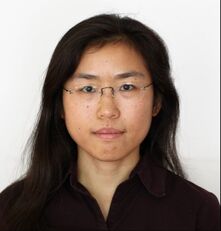
QICi Seminar: The curious capacities of quantum channels.
Speaker: Debbie Leung (IQC & Department of Combinatorics & Optimization, University of Waterloo)
Time and location: Wednesday August 09, 2019, 2-3 pm
Room 308, Chow Yei Ching Building
Abstract: The best asymptotic rate of a communication channel to process information (such as transmitting data or creating correlation) is called the capacity of the channel for the task involved. This talk focuses on the capacities of a quantum channel to communicate quantum or private classical data. We first summarize well known surprising results, followed by sharing a few recent developments in the subject.
Bio: Debbie Leung joined the Institute for Quantum Computing (IQC) and the Department of Combinatorics and Optimization at the University of Waterloo in 2005. She has been an associate member of the Perimeter Institute since 2019. She was a Tolman postdoctoral fellowship at the Institute for Quantum Information, Caltech, after spending four months at the Workshop on Quantum Computation, September-December 2002, at the Mathematical Sciences Research Institute, Berkeley, and a two-year stay at the Physics of Information group at the IBM TJ Watson Research Center, 2000 -2002. After a BSc in Phys/Math from Caltech in 1995, she did a PhD in Physics at Stanford under the supervision of Professor Yoshihisa Yamamoto and Professor Isaac Chuang.
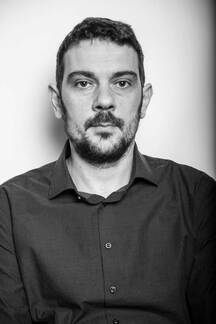
QICi Seminar: Quantum communication with limited resources.
Speaker: Borivoje Dakic (Faculty of Physics, University of Vienna)
Time and location: Wednesday July 17, 2019, 2-3 pm
Room 308, Chow Yei Ching Building
Abstract: Generally speaking, communication is the process of transmitting a message
(information) from a sender to a receiver. When the distant parties use a single classical particle to communicate, they are restricted to "one-way signaling", as the particle can carry information in one direction only. In this talk, I will analyze the corresponding quantum scenario, where the parties communicate via a single quantum particle prepared in superposition of different spatial locations. Surprisingly, I will show that such a scenario results in "multi-way signaling", which is impossible in classical physics. our framework [1, 2] does not assume (a priori) the use of entanglement, in contrast to majority of known quantum information tasks and protocols. These findings bring novel insights into quantum information processing, ranging from foundational to practical.
[1] F. del Santo and B. Dakic, Two-way communication with a single quantum particle, Phys. Rev. Lett. 120, 060503 (2018).
[2] F. Massa, A. Moqanaki, F. del Santo, B. Dakic and P. Walther, Experimental two-way communication with one photon, arXiv: 1802.05102 (2018).
Bio: Borivoje Dakic is an assistant professor at the Faculty of Physics at the University of Vienna. He obtained his PhD degree in Physics at the University of Vienna. After being a postdoc at the Center for Quantum Technologies in Singapore and Oxford University, UK, he returned to Vienna to run independent research. Since 2016 he is a member of the Foundational Question Institute (FQXi). His expertise lies in the quantum information theory, entanglement characterization and quantum foundation.
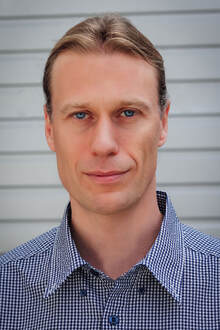
QICi Seminar: The strong converse exponent of classical-quantum channel coding with constant compositions.
Speaker: Milan Mosonyi (Institute of Mathematics, Budapest University of Technology and Economics)
Time and location: Thursday July 11, 2019, 2-3 pm
Room 308, Chow Yei Ching Building
Abstract: There are different natural-looking ways to quantify the usefulness of a classical-quantum channel for information transmission. Given a quantum divergence (e.g. Renyi divergence) and an input distribution P, one can define the corresponding mutual information, which is the divergence "distance" of the joint input-output state from the set of product states with fixed first marginal P. An alternative approach is to measure how spread out the channel states are in the state space, giving rise to the concept of the P-weighted divergence radius. We show that it is this latter notion that admits an operational interpretation in the context of constant composition channel coding, with the divergence being the sandwiched Renyi divergence.
Bio: Milan Mosonyi obtained his PhD in theoretical physics in 2005 at the Catholic University of Leuven, under the supervision of Mark Fannes and Denes Petz. He has been an assistant professor (since 2005) and later an associate professor (since 2012) at the Institute of Mathematics, Budapest University of Technology and Economics. Between 2006 and 2016 he was in research positions at Tohoku University, National University of Singapore, University of Bristol, Autonomous University of Barcelona and the Technical University of Munich. his main research interests are quantum Shannon theory and mathematical physics.
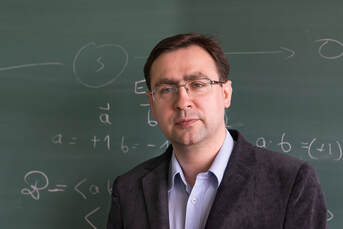
QICi Seminar: Some perspectives on Relativistic Causality
Speaker: Pawel Horodecki (Gdansk University of Technology)
Time and location: Monday June 03, 2019, 2-3pm
Room 308, Chow Yei Ching Building
Abstract: We shall discuss two perspectives on relativistic causality. The first one is based on discrete systems statistics and shows that minimal assumption on correlation boxes from the perspective of relativistic causality leads to a correlation picture that goes far beyond standard no-signaling paradigm. The second analysis involves an analysis of dynamics of potential continuous statistics of single system in quantum-like, linear or not, theory. The main result provides the condition under which such dynamics may be causal.
Bio: Pawel Horodecki graduated from Gdansk University. He is currently Professor and lecturer at Gdansk University of Technology, Professor and group leader in International Center for Theory of Quantum Technologies. His research interest includes contributions to theory of quantum entanglement and quantum communication, including co-discovery of bound entanglement phenomenon and quantum entanglement witnesses. His broad area of research are quantum information and foundations of quantum physics.
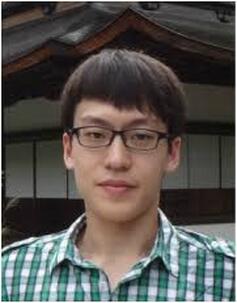
QICi Seminar: Memory effects in quantum metrology
Speaker: Yuxiang Yang (ETH Zürich)
Time and location: Friday May 31st 2019, 2-3pm
Room 308, Chow Yei Ching Building
Abstract: Quantum metrology concerns estimating a parameter from
multiple identical uses of a quantum channel. We extend quantum
metrology beyond this standard setting and consider estimation of a physical process with quantum memory, here referred to as a parametrized quantum comb. We present a theoretic framework of metrology of quantum combs, and derive a general upper bound of the comb quantum Fisher information. The bound can be operationally interpreted as the quantum Fisher information of a memoryless channel times a dimensional factor. We then show an example where the bound can be attained up to a factor of two. With the example and the bound, we show that memory in quantum sensors plays an even more crucial role in the estimation of combs than in the standard setting of quantum metrology.
Bio: Yuxiang Yang is a postdoctoral fellow at the Institute for Theoretical Physics, ETH Zurich. He holds a PhD in Computer Science from The University of Hong Kong and a BS in Physics from Tsinghua University. In 2017 he was awarded a Microsoft Research Asia Fellowship for his work in quantum information theory. His research aims to identify quantum advantages in communication and computation, and to design optimal protocols for the next generation of quantum computing devices.
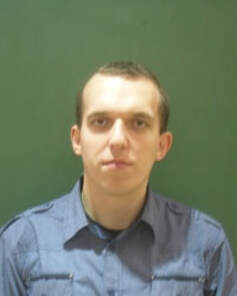
QICi Seminar: Multiport quantum teleportation protocols and fundamental bounds
on their performance
Speaker: Michal Studzinski (National Quantum Information Centre, Gdansk)
Time and location: Friday May 17th 2019, 1-2pm
Room 308, Chow Yei Ching Building
Abstract: Quantum teleportation is one of the earliest and most widely used primitives in
Quantum Information Science which performs an arbitrary quantum state transfer
between two spatially separated systems. This involves pre-sharing entangled resource
state and consists of three simple stages (joint measurement, classical communication, and
correction operation). Already except standard quantum teleportation protocol presented by Bennet et al. we distinguish Knill-Laflamme-Milburn schme based soley on linear optical tools and so called Port-based Teleportation scheme, where in the last step the unitray correction is absent. Lack of the correction in the last step extends permieter of possible applications to position-based cryptography, communication complexity or theory of the universal quantum processors.
In our work we show that mentioned above quantum teleportation protocols can be derived from one unified scheme based purely on group theoretical and algebraic tools. More formal – the output which is of the form of teleportation protocol depends on the type of a controlled unitary on the sender’s side, where unitaries used for the construction are considered to be representations of a finite group. Additionally, we derived using the convex split lemma, lower bound on the primal parameter describing the performance of our unified scheme – the entanglement fidelity. Obtained bound is of the fundamental nature, giving limitations on the performance to any teleportation procedure fitting the scheme and reproducing limits in known cases. As the second result, we propose novel unified teleportation schemes, following from the unification procedure for transmitting more than one unknown quantum state in one go, togheter with lower bound on their performance. We show how to extract from them, by choosing proper group symmetry of the system, new port-based like teleportation schemes. The proof is based on generalisation of the convex split lemma proven additionally by the authors. At the end we discuss potential power of new teleporation schemes with respect to known teleportation procedures used for teleportation more than one unknown quantum state. The problem of the interplay between amount of resources needed for teleportation and unitary correction is also discussed.
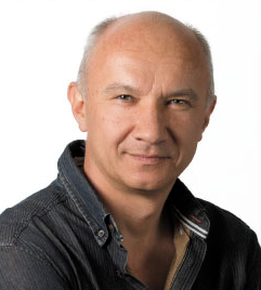
William Mong Distinguished Lecture 2019:
Privacy for the paranoid ones: the ultimate limits of secrecy
Speaker: Artur Ekert (FRS, Centre for Quantum Technologies, NUS, and University of
Oxford)
Time and location: Wednesday April 10th 2019, 5-6pm (Reception at 4:30pm),
Lecture Theater A, Chow Yei Ching Building
Abstract: Among those who make a living from the science of secrecy, worry and
paranoia are just signs of professionalism. Can we protect our secrets against those
who wield superior technological powers? Can we trust those who provide us with
tools for protection? Can we even trust ourselves, our own freedom of choice? Recent
developments in quantum cryptography show that some of these questions can be addressed and discussed in precise and
operational terms, suggesting that privacy is indeed possible under surprisingly weak assumptions.
Bio: Professor Artur Ekert is Director of the Centre for Quantum Technologies and Lee Kong Chian Centennial Professor at the National University of Singapore. He is also Professor of Quantum Physics at the Mathematical Institute, University of Oxford, UK. He is one of the co-inventors of quantum cryptography, and his current research extends over most aspects of information processing in quantum-mechanical systems. He has worked with and advised several companies and government agencies. He is a recipient of several awards, including the 1995 Maxwell Medal and Prize by the Institute of Physics and the 2007 Royal Society Hughes Medal. In 2016 he was elected a Fellow of the Royal Society. In his non-academic life, he is an avid scuba diver and pilot.
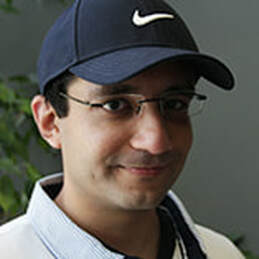
QICi Seminar: Randomness Amplification From Untrusted Devices
Speaker: Ravi Ramanathan (Université Libre de Bruxelles)
Time and location: Monday, December 3rd 2018, 2:00 pm
Room 308, Chow Yei Ching Building
Abstract: Quantum cryptography promises security based only on the laws of physics.
This promise reaches its most spectacular realization in the field of device-
independent quantum cryptography, where security is achieved even if the devices
used by the communicating parties are manufactured by an adversary. In this talk, I will
present first device-independent protocols for the fundamental cryptographic task of
randomness amplification. The task is to obtain secure private random bits starting from single weak sources of randomness. This task is known to be impossible classically, while quantum non-local correlations enable its possibility. The protocol can amplify any non-deterministic source with the Santha-Vazirani structure into a fully random source, tolerates a constant rate of error, and has its correctness based solely on the assumption of no-signaling between the devices, an assumption justified by Einstein's Special Relativity. I will also discuss foundational research into aspects of quantum non-local correlations that enable these applications as well as exciting future prospects for quantum device-independent cryptographic protocols against relativistic adversaries for randomness amplification, expansion, key distribution, and secret sharing.
References:
(1) Nature Communications 7, 11345 (2016)
(2) Phys. Rev. Lett. 117, 050401 (2016)
(3) Phys. Rev. Lett. 117, 230501 (2016)
(4) Phys. Rev. A 94, 022305 (2016)
(5) IEEE Transactions on Information Theory, vol. 63, no. 11, pp. 7592 - 7611, 2017
(6) arXiv:1810.11648 (2018).
Bio: Ravishankar Ramanathan is a post-doctoral researcher at the Universite Libre de Bruxelles.
He did his Ph.D. in Physics from the National University of Singapore and has held postdoctoral
fellowships in Gdansk and Oxford. His main research interests are in Quantum Cryptography,
specifically Randomness Amplification, Expansion and Key Distribution, Device-Independent
Applications of Quantum Theory and Foundations of Quantum Mechanics.
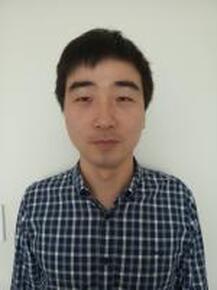
QICi Seminar: Quantum Algorithms: Learning, Communication, and Verification
Speaker: Nengkun Yu (University of Technology Sydney)
Time and location: Monday, December 3rd 2018, 10:00 am
Room 308, Chow Yei Ching Building
Abstract: Quantum algorithms are central themes of the current quantum computing
research, and crucial for practical applications of future quantum computers. I will talk about
my recent works of quantum algorithms from three perspectives, namely, learning,
communication and verification. Firstly, I will review my work on quantum learning, in which I
closed a long-standing gap between the upper and lower bounds for quantum state tomography. This is a fundamental problem of quantum learning initiated by Alexander Holevo in the early 1970s. In the second part, I will demonstrate a quantum algorithm which shows that quantum communication complexity is robust in the low noise regime. This is of great importance because, while quantum communication advantages are achieved by accessing to noiseless communication channels, quantum channel in real world are inevitable imperfect. Thirdly, I will present my recent contribution of the formal method verification of quantum algorithms. By combining the celebrated idea of Birkhoff-von Neumann quantum logic and Ying’s quantum Hoare logic, I derive a logic and apply it to verify two sophisticated quantum algorithms: HHL for solving systems of linear equations and qPCA (quantum Principal Component Analysis). I will
conclude my talk with some challenges and opportunities.
Bio: Nengkun Yu is a senior lecturer of University of Technology Sydney. He received the B.S. and Ph.D. degrees in Computer Science from the Department of Computer Science and Technology, Tsinghua University, Beijing, China, in July of 2008 and 2013, respectively. In January 2014, he became a Postdoctoral in the Institute for Quantum Computing of University of Waterloo, Canada. In July 2016, he moved to University of Technology Sydney (UTS), Australia. He was awarded the Australian Research Council Discovery Early Career Research Award (DECRA) and Australian Academy of Science’s J G Russell Award in 2018.
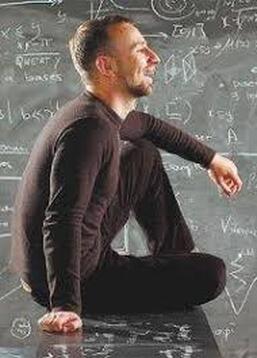
QICi Seminar: What does relativity tell us about quantum mechanics?
Speaker: Daniel Terno (Macquarie University)
Time and location: Friday, November 30th 2018, 3:00 pm
Room 308, Chow Yei Ching Building
Abstract: After discussing several levels at which quantum foundational questions
interact with relativity, I will briefly discuss some of them: causality considerations,
effects of field theory and gravity.
Bio: Danny completed his undergraduate and graduate studies at Technion in Haifa, Israel, with Asher Peres as the thesis advisor, finishing his Ph.D. in 2003. Between March 2003 and December 2006 he was a postdoc at PI. This is where his affair with black holes and quantum gravity have begun. Danny joined the faculty of the Macquarie University in Sydney in 2007, and currenly he is an A/Prof at the Department of Physics and Astronomy.
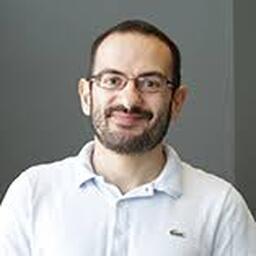
QICi Seminar: Full characterization of square-bit theories
Speaker: Michele Dall'Arno (Centre for Quantum Technologies, NUS)
Time and location: Friday, November 30th 2018, 2:00 pm
Room 308, Chow Yei Ching Building
Abstract: Square bits are a family of physical theories well-known for their ability to
reproduce maximal space-like correlations compatible with the no-signaling principle,
outperforming in this task classical and quantum theory. In this presentation, we
will provide a full characterization of all the self-consistent bipartite extensions of a
square bit. We will show the existence of models that are fully compatible with classical and quantum theories at the level of space-like correlations, and thus cannot be ruled out on the basis of any of the previously considered operational principles constraining such correlations. However, we will show that such models exhibit super-quantum time-like correlations that can be ruled out by introducing the no-hypersignaling principle, a time-like "counterpart” of no-signaling.
Bio: Michele Dall’Arno received his PhD in theoretical physics from the University of Pavia, Italy, in 2012. After post-doc positions in ICFO, Barcelona, and Nagoya, Japan, he joined the Centre for Quantum Technologies, National University of Singapore, where he is a post-doctoral researcher since 2014.
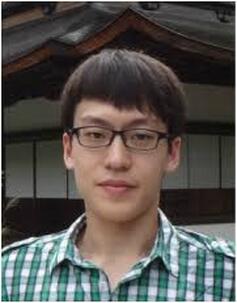
QICi Seminar: Enhancing the accuracy of timekeeping with quantum technologies
Speaker: Yuxiang Yang (ETH Zürich)
Time and location: Thursday, November 22nd 2018, 2:30 pm
Room 308, Chow Yei Ching Building
Abstract: Timekeeping plays a crucial role in navigating the world around us. Any device
that produces time information, ranging from a simple pendulum to the most
sophisticated atomic clock, is subject to a fundamental accuracy limit set by the laws of
quantum mechanics. Pushing the precision of timekeeping towards the ultimate limit is
crucial for applications like GPS, where even the tiniest errors matter. In this talk, I will
show how to increase the accuracy of timekeepers using quantum technologies. I will
discuss two different types of timekeepers: clocks, which produce ticks regularly, and stopwatches, which records the duration of several events. When supplied with additional quantum systems, both types of timekeepers can be made more accurate. This improvement leads to a performance that is not achievable if the supplied systems are classical. This result manifests an advantage of employing quantumness in timekeeping tasks.
Bio: Yuxiang Yang is a postdoctoral fellow at the Institute for Theoretical Physics, ETH Zurich. He holds a PhD in Computer Science from The University of Hong Kong and a BS in Physics from Tsinghua University. In 2017 he was awarded a Microsoft Research Asia Fellowship for his work in quantum information theory. His research aims to identify quantum advantages in communication and computation, and to design optimal protocols for the next generation of quantum computing devices.
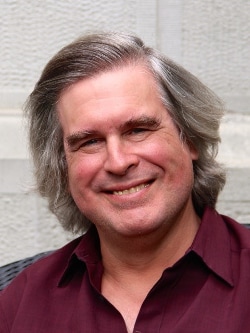
William Mong Distinguished Lecture 2017: Cryptography in a Quantum World
Speaker: Gilles Brassard (FRS, Department of Computer Science and Operations
Research, Université de Montréal)
Time and location: Wednesday April 26th 2017, 5-6pm (Reception at 4:30pm)
Lecture Theater A, Chow Yei Ching Building
Abstract: Cryptography, although practiced as an art and science for thousands of years,
had to wait until the end of the 1940s before Claude Shannon gave it a strong
mathematical foundation. However, Shannon's approach was rooted in his own
information theory, itself inspired by the classical physics of Newton. But our world is
ruled by the laws of quantum mechanics. When quantum-mechanical phenomena are
considered, new vistas open up both for cryptographers (code makers) and cryptanalysts (code breakers). Some theorems (including by Shannon) remain mathematically correct, but become irrelevant in our quantum world. Most strikingly, it is possible for two people who do not share ahead of time a long secret key to communicate in perfect secrecy under the nose of an eavesdropper with unlimited computing power and whose technology is limited only by the known laws of physics. Conversely, quantum mechanics provides powerful tools to threaten the mechanisms that are currently used on the Internet to protect electronic transactions. Furthermore, it seems — but is not yet proven — that quantum mechanics provides more benefits to cryptanalysts than cryptographers if the latter are restricted to using only classical communication channels. So, in the end, is quantum mechanics a blessing or a curse to the protection of privacy? The jury is still out. No prior knowledge in quantum mechanics or cryptography will be expected from the audience.
Bio: Professor of computer science since 1979 and Canada Research Chair at the Université de Montréal, Gilles Brassard FRS, O.C., laid the foundations of quantum cryptography at a time when only a handful of people worldwide were interested in quantum information science. This thirty-year-old theoretical idea has lead to new enabling technologies for secure quantum communication on Earth and via satellite in which China has taken the international lead. Professor Brassard is also among the inventors of quantum teleportation, a universally recognized fundamental keystone of the entire quantum information discipline, for which Thomson Reuters has predicted that he will one day receive the Nobel Prize in Physics. Editor-in-Chief for Journal of Cryptology from 1991 until 1997, he is the author of three books that have been translated into eight languages (including Chinese). He is a Fellow of the Royal Society of London, the Royal Society of Canada, the Canadian Institute for Advanced Research and the International Association for Cryptologic Research. He was awarded honorary doctorates by the ETH in Zürich, the University of Ottawa and the Università della Svizzera italiana in Lugano, and made an Officer of the Order of Canada.
Speaker: Gilles Brassard (FRS, Department of Computer Science and Operations
Research, Université de Montréal)
Time and location: Wednesday April 26th 2017, 5-6pm (Reception at 4:30pm)
Lecture Theater A, Chow Yei Ching Building
Abstract: Cryptography, although practiced as an art and science for thousands of years,
had to wait until the end of the 1940s before Claude Shannon gave it a strong
mathematical foundation. However, Shannon's approach was rooted in his own
information theory, itself inspired by the classical physics of Newton. But our world is
ruled by the laws of quantum mechanics. When quantum-mechanical phenomena are
considered, new vistas open up both for cryptographers (code makers) and cryptanalysts (code breakers). Some theorems (including by Shannon) remain mathematically correct, but become irrelevant in our quantum world. Most strikingly, it is possible for two people who do not share ahead of time a long secret key to communicate in perfect secrecy under the nose of an eavesdropper with unlimited computing power and whose technology is limited only by the known laws of physics. Conversely, quantum mechanics provides powerful tools to threaten the mechanisms that are currently used on the Internet to protect electronic transactions. Furthermore, it seems — but is not yet proven — that quantum mechanics provides more benefits to cryptanalysts than cryptographers if the latter are restricted to using only classical communication channels. So, in the end, is quantum mechanics a blessing or a curse to the protection of privacy? The jury is still out. No prior knowledge in quantum mechanics or cryptography will be expected from the audience.
Bio: Professor of computer science since 1979 and Canada Research Chair at the Université de Montréal, Gilles Brassard FRS, O.C., laid the foundations of quantum cryptography at a time when only a handful of people worldwide were interested in quantum information science. This thirty-year-old theoretical idea has lead to new enabling technologies for secure quantum communication on Earth and via satellite in which China has taken the international lead. Professor Brassard is also among the inventors of quantum teleportation, a universally recognized fundamental keystone of the entire quantum information discipline, for which Thomson Reuters has predicted that he will one day receive the Nobel Prize in Physics. Editor-in-Chief for Journal of Cryptology from 1991 until 1997, he is the author of three books that have been translated into eight languages (including Chinese). He is a Fellow of the Royal Society of London, the Royal Society of Canada, the Canadian Institute for Advanced Research and the International Association for Cryptologic Research. He was awarded honorary doctorates by the ETH in Zürich, the University of Ottawa and the Università della Svizzera italiana in Lugano, and made an Officer of the Order of Canada.
|
QICi Seminar: Nonsignalling theories are local-realistic
Speaker: Gilles Brassard (Department of Computer Science and Operations Research, Université de Montréal) Time and location: Thursday April 27th 2017, 1-3pm, Room 308, Chow Yei Ching Building Abstract: Most physicists take it for granted that the experimental violation of Bell’s inequality provides evidence that it is not possible to completely describe the state of a physical system in terms of purely local information when this system is entangled with some other system. We disagree. Provided we redefine appropriately what is the information-theoretic state of a quantum system, it becomes possible to recover the whole from the description of its parts. This is in sharp contrast with the standard formalism of quantum mechanics in which the density matrix provides all there is to say about the state of a system. According to our formalism, there is no need to invoke supernatural nonlocality in order to explain everything standard quantum mechanics tells us that we can observe. We show, however, that this is inconsistent with the usual belief held among Everettians that the universal wavefunction can be taken as the complete representation of reality. Inspired by Plato and Kant, we introduce and contrast the notions of noumenal and phenomenal states of physical systems: the former corresponds to the complete but unknowable state of the system and the latter to what can be perceived about it with the help of arbitrary technology. We exhibit an explicit epimorphism from the former to the latter, which explains the relationship between all that there is and all that can be apprehended. |
|
QICi Seminar: Quantum Control of Spins in Solids
Speaker: Xing Rong (CAS Key Laboratory of Microscale Magnetic Resonance and Department of Modern Physics, University of Science and Technology of China, Hefei, China ) Time and location: Tuesday April 18th 2017, 5-6pm, Room 308, Chow Yei Ching Building Abstract: Quantum computation provides great speedup over its classical counterpart for certain tasks. Spin system is one of the most important candidates to realize quantum computations. The initialization, readout and quantum gate operations of spin qubits can be accomplished by advanced spin resonance techniques, which include nuclear magnetic resonance, electron paramagnetic resonance and optically detected magnetic resonance. My talk aims to summarize our recent experimental progresses in spin-based quantum computing. I will introduce how to suppress the noise from the environment to protect quantum states [1,2]. Then the realization of ultra-high fidelity quantum gates will be discussed [3,-6]. Finally, I will show how to realize time-optimal control of spins [7]. 1. Nature 461, 1265 (2009) 2. PRL 106, 040501 (2011) 3. PRL 109, 070502 (2012) 4. PRL 112, 010503 (2014) 5. PRL 112, 050503 (2014) 6. Nature Communications 6, 8748 (2015) 7. PRL 117, 170501 (2016) |
|
QICi Seminar: Compressed Quantum Simulation
Speaker: Zhaokai Li (CAS Key Laboratory of Microscale Magnetic Resonance and Department of Modern Physics, University of Science and Technology of China, Hefei, China ) Time and location: Wednesday April 19th 2017, 5-6pm Room 328, Chow Yei Ching Building Abstract: Certain n-qubit quantum systems can be faithfully simulated by quantum circuits with only O(log(n)) qubits [1]. I will report an experimental realization of the compressed quantum simulation on a one-dimensional Ising chain [2]. By utilizing an nuclear magnetic resonance quantum simulator with only five qubits, the property of ground-state magnetization of an open-boundary 32-spin Ising model is experimentally simulated, prefacing the expected quantum phase transition in the thermodynamic limit. This experimental protocol can be straightforwardly extended to systems with hundreds of spins by compressing them into up to merely 10-qubit systems. Besides, I will also talk about the experimental platforms we have in USTC and some recent experimental studies in our lab, including experimental quantum machine learning [3] and quantum factorization [4]. [1] Phys. Rev. Lett. 107, 250503 (2011) [2] Phys. Rev. Lett. 112, 220501 (2014) [3] Phys. Rev. Lett. 114, 140504 (2015) [4] ArXiv.org/1611.03293 (2016) |
|
QICi Seminar: The message of the Bell inequality
Activity: FQXi Mini-Workshop on Quantum Information and Foundations Speaker: Adan Cabello (University of Seville) Time and location: Tuesday, December 13,2016, 3-4pm Room 308, Chow Yei Ching Building Abstract: What can we learn about the universe from the recent experiments confirming the violation of the Bell inequality? [1-5] A first, obvious, lesson is that the universe cannot be explained as Einstein would like. More importantly, we learn that in the universe there are "measurements" for which there is not joint probability distribution, and that any good theory of the universe should use "states" which give maximum information about a system without giving any information about its parts. But this is just the beginning. The specific way quantum theory violates the Bell inequality tell us much more than that. The maximum value predicted by quantum theory and confirmed in a recent experiment [6] tells us that there are no physical laws limiting the value of the Bell parameter: what we observe is already the largest value possible in any "nice" theory of the universe. [1] B. Hensen et al., Nature 526, 682 (2015). [2] M. Giustina et al., et al. Phys. Rev. Lett. 115, 250401 (2015). [3] L. K. Shalm et al., Phys. Rev. Lett. 115, 250402 (2015). [4] B. Hensen et al., arXiv:1603.05705. [5] H. Weinfurter, https://play.lnu.se/media/t/0_i7ibwbp6 [6] H. S. Poh et al. Phys. Rev. Lett. 115, 180408 (2015). |
|
QICi Seminar: Memory Size Reduction of Approximate Sufficient Statistics
Activity: FQXi Mini-Workshop on Quantum Information and Foundations Speaker: Masahito Hayashi (Nagoya University and CQT, Singapore) Time and location: Monday, December 12, 2016, 2-3pm Room 313, Chow Yei Ching Building Abstract: Given a sufficient statistic for a parametric family of distributions, one can estimate the parameter of the distribution generating the data without access to the data itself. However, the memory or code size for storing the sufficient statistic may nonetheless still be prohibitive. Indeed, by the method of types, it is known that for $n$ independent data samples drawn from a $k$-nomial distribution with $d=k-1$ degrees of freedom, the length of the code scales as $d\log n+O(1)$ as $n\to\infty$. In many applications though, we may not need to reconstruct the unknown parameter or generating distribution exactly. By adopting a Shannon-theoretic approach in which we allow a small (but non-vanishing error) in estimating the parameter, we consider various constructions of {\em approximate sufficient statistics} and show that under regularity assumptions on the parametric family, the code length can be reduced to $\frac{d}{2}\log n+O(1)$ as $n\to\infty$. We consider errors measured according to both the relative entropy and variational distance criteria. For the code construction parts, we leverage Rissanen's minimum description length principle---namely, a two-step encoding procedure that yields a universal variable-length source code. For the converse parts, we use Clarke and Barron's asymptotic expansion for the relative entropy of a product parametrized distribution and a mixture distribution. In addition to weak converses, we also prove strong converses for our statements. This means that even if the code is allowed to have a non-vanishing error, its length must still be at least $\frac{d}{2}\log n+O(1)$. This work is a joint work with Vincent Y. F. Tan. |
Bio: Masahito Hayashi was born in Japan in 1971. He received the B.S. degree from the Faculty of Sciences in Kyoto University, Japan, in 1994 and the M.S. and Ph.D. degrees in Mathematics from Kyoto University, Japan, in 1996 and 1999, respectively. He worked in Kyoto University as a Research Fellow of the Japan Society of the Promotion of Science (JSPS) from 1998 to 2000, and worked in the Laboratory for Mathematical Neuroscience, Brain Science Institute, RIKEN from 2000 to 2003, and worked in ERATO Quantum Computation and Information Project, Japan Science and Technology Agency (JST) as the Research Head from 2000 to 2006. He also worked in the Superrobust Computation Project Information Science and Technology Strategic Core (21st Century COE by MEXT) Graduate School of Information Science and Technology, The University of Tokyo as Adjunct Associate Professor from 2004 to 2007. In 2006, he published the book "Quantum Information: An Introduction'' from Springer. In 2007, he joined the Graduate School of Information Sciences, Tohoku University as Associate Professor. He also worked in Centre for Quantum Technologies, National University of Singapore as Visiting Research Associate Professor from 2009. He is on the Editorial Board of International Journal of Quantum Information and International Journal On Advances in Security. His research interests include quantum information theory, quantum statistical inference, and Shannon Theory.
|
QICi Seminar: Embezzlement of entanglement, conservation laws, and nonlocal games
Activity: FQXi Mini-Workshop on Quantum Information and Foundations Speaker: Debbie Leung (University of Waterloo) Time and location: Monday, December 12, 2016, 2-3pm Room 313, Chow Yei Ching Building Abstract: Consider two remote parties Alice and Bob, who share quantum correlations in the form of a pure entangled state. Without further interaction, the "Schmidt coefficients" of the entangled state are invariant; in particular, the amount of entanglement is conserved. van Dam and Hayden found that reordering these coefficients (corresponding to allowed local operations) can effect an apparent violation of the conservation law nearly perfectly, a phenomenon called "embezzlement". We discuss how the same mathematics can explain coherent manipulation of spins in NMR and other approximate violation of conservation laws. We show how this phenomenon gives rise to a quantum generalization of nonlocal games that cannot be won with finite amount of entanglement. (Joint work with Ben Toner, John Watrous and Jesse Wang.) |
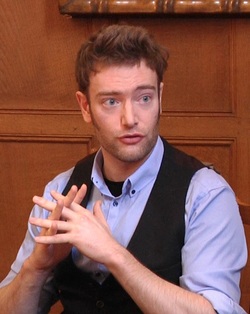
QICi Seminar: Harnessing the quantum world: can lab experiments become practical
technologies?
Speaker: Simon Benjamin (University of Oxford)
Time and location: Friday, September 23 2016, 2-3pm
Room 308, Chow Yei Ching Building
Abstract: The effort to develop practical quantum technology is ramping up worldwide,
with the UK and other governments recently announcing hundreds of millions of dollars
worth of investment. Some say this is premature! Are we now sure that complex quantum
systems can be adequately controlled, and sufficiently scaled, that they will be useful
outside the lab? I will ague that the answer is "yes". After reviewing recent achievements
in experiments, theory and applications, I will describe the Q20:20 machine that the
Oxford-led National Quantum Hub is building in the UK. More importantly, I'll try to offer an answer to the question "What would the first generation of such machines be useful for?"
Bio: Simon Benjamin is Professor of Quantum Technologies at Materials Department in the University of Oxford, and an Associate Director of the Oxford-led UK Hub on Networked Quantum Information Technologies (NQIT). Simon leads a team of ten staff and students called the Quantum and Nanotechnology Theory group (QuNaT). They are applied theorists, who study various questions relating to how build and use a new generation of technologies based on harnessing quantum effects. The group has interests ranging from energy harvesting to sensors to secure communications, and even the question of whether quantum effects are exploited by biology; but their primary interest is in information processing systems. Simon has been a Visiting Professor at the Centre for Quantum Technologies in Singapore, and is currently a visiting researcher at the Singapore University of Technology and Design.
technologies?
Speaker: Simon Benjamin (University of Oxford)
Time and location: Friday, September 23 2016, 2-3pm
Room 308, Chow Yei Ching Building
Abstract: The effort to develop practical quantum technology is ramping up worldwide,
with the UK and other governments recently announcing hundreds of millions of dollars
worth of investment. Some say this is premature! Are we now sure that complex quantum
systems can be adequately controlled, and sufficiently scaled, that they will be useful
outside the lab? I will ague that the answer is "yes". After reviewing recent achievements
in experiments, theory and applications, I will describe the Q20:20 machine that the
Oxford-led National Quantum Hub is building in the UK. More importantly, I'll try to offer an answer to the question "What would the first generation of such machines be useful for?"
Bio: Simon Benjamin is Professor of Quantum Technologies at Materials Department in the University of Oxford, and an Associate Director of the Oxford-led UK Hub on Networked Quantum Information Technologies (NQIT). Simon leads a team of ten staff and students called the Quantum and Nanotechnology Theory group (QuNaT). They are applied theorists, who study various questions relating to how build and use a new generation of technologies based on harnessing quantum effects. The group has interests ranging from energy harvesting to sensors to secure communications, and even the question of whether quantum effects are exploited by biology; but their primary interest is in information processing systems. Simon has been a Visiting Professor at the Centre for Quantum Technologies in Singapore, and is currently a visiting researcher at the Singapore University of Technology and Design.

